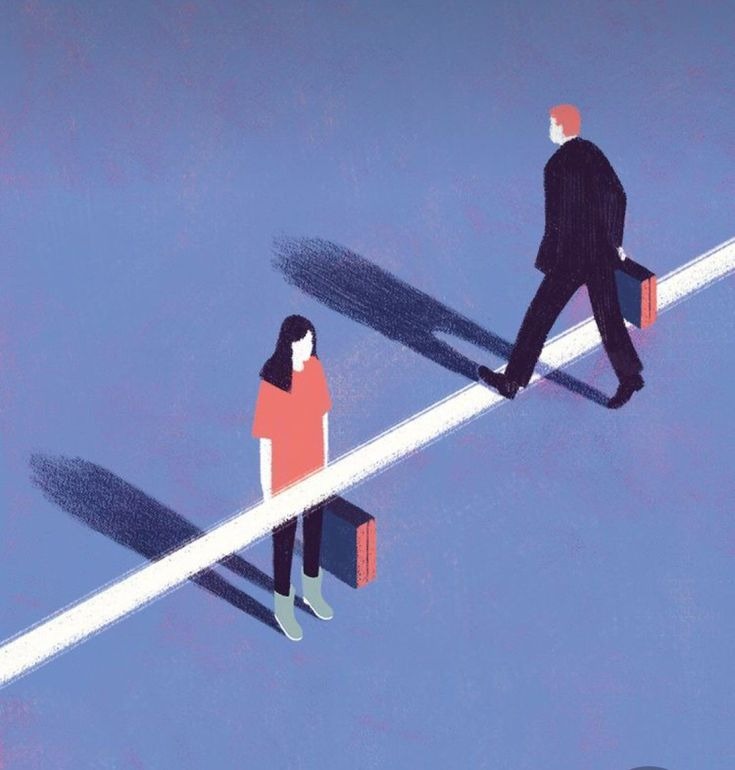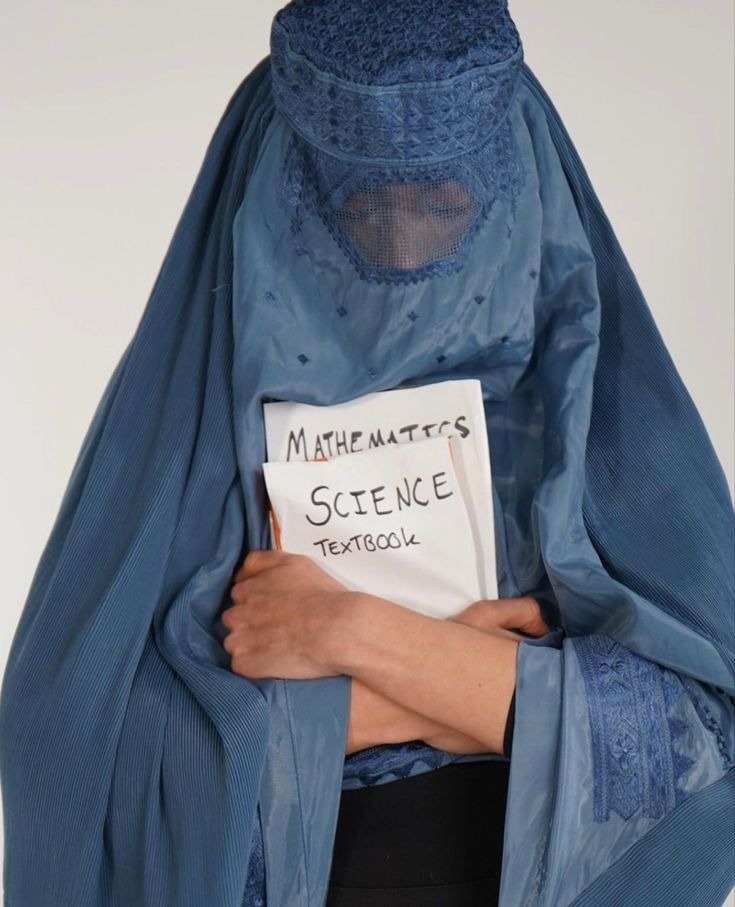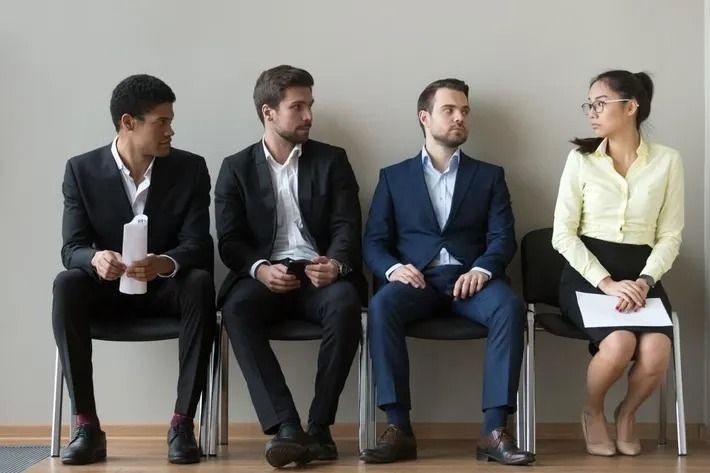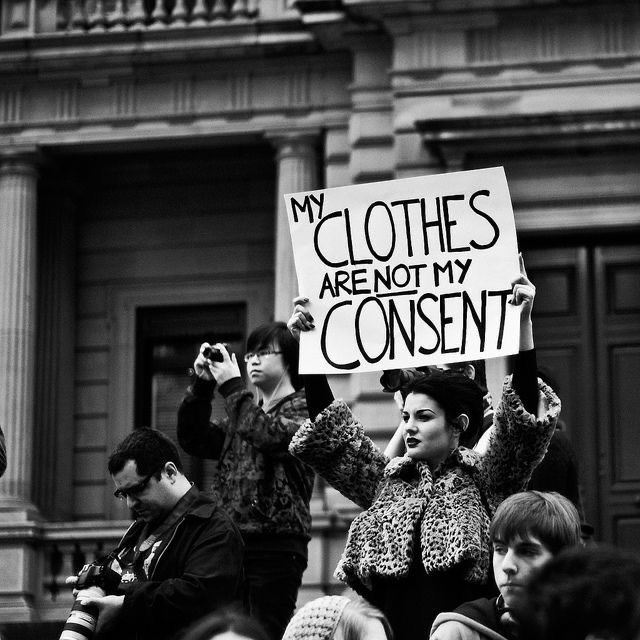Since the Ukrainian war broke out, my mother and the rest of the family had to move to Poland to ensure safety for us there. As we moved to Lublin, one of the cities in Poland, we encountered financial difficulties and my mum tried to find a job as an architect, because she got a Master’s degree in architecture from “Kyiv National University of Architecture and Construction”. But she could not have been employed anywhere except in low-paying job positions, because the employers believed that her degree was unacceptable and she was suitable to work only for “feminine” job positions, like cleaning staff. She had to live in this reality of public discrimination for over two years until we had the opportunity to move to Portugal because of my father’s job offer to work in a construction company. However, after a while, the construction company, where my father worked closed down and my mother started looking for work that would be at least tangentially related to her major as an architect. To date, her efforts to get employed for such job positions have been in vain, as she has only a basic level of knowledge of Portuguese language. Even though she knows Polish at B2, English at B1 level, Ukrainian, and Russian fluently, she still cannot get hired due to unfamiliarity with the local language (or local second language, French). In addition, my mother brings up my little brother, Kiril, who currently attends 1st grade in Portuguese primary school and had to spend a handful of time on him starting from taking him to school, preparing lunchbox for him every day, preparing dinner for the entire family and ending with walking him back from school and learning Portuguese with him while helping to do his homework.

That is why my mother has no other way except to continue learning Portuguese, as she cannot work on hard labor jobs (she is 48), she has time restrictions, and she also has to take care of my brother and tackle financial difficulties every day. She cannot continue her career path as she planned when she graduated because she dedicates all her time to so-called feminine” responsibilities. She brought up me, my two elder sisters and now she spends her time on my little brother. She also cooks meals for my little brother and the rest of the family and thus she does not have any spare time left to develop her business in the architecture industry. I feel, that my mother is not the only example of such unfairness encountered in her life, and the majority of women cannot continue their intended career path because of fostering a younger generation that will become the backbone of the future development in the world. In a few countries, mothers are paid for the birth of the child, however, it is still a large issue in our modern world as many other states do not follow the same scheme. I believe this problem that every mother faces daily when they devote a large part of their life to making up a new generation, has to be considered and not neglected worldwide. That is why I created this website to bring this issue to public attention and make others aware of the current problems caused by gender inequity in our society.


 There are multiple restrictions imposed on educational rights for women. One of the devastating cases that happened recently was the prohibition by Talibs of the only occupation women could have obtained in Afghanistan, which is nursing. It caused a rise in the maternal fertility rate accounting for 638 per 100,000 women in 2024. The reasoning behind this rate is a passed law, that in case of childbirth accompanied by male nurses another legal guardian should be present during this procedure. Conversely, if a female nurse assists in giving birth to a child, having another legal guardian present is not required.
It exacerbated the case of women since 2021 when de facto authorities took away the right to gain secondary and higher education for women. It resulted in the plunging rate of literate girls and educated women. With every year, the statistics get worse and worse. In 2021, over 1.4 million women departed from educational institutions because of de facto authorities. For 2023, there were an additional 300,000 women forbidden to continue their education. To date, it added up to 2.5 million uneducated Afghan women, who can get educated only through alternative ways represented by UNESCO, such as the employment of teachers in 20 provinces out of 34 to lecture classes for mostly girls who do not have the right to proceed their education (it helped over 55,000 women to get educated regardless the governmental oppression), radio stations giving classes to over 17 million Afghan uneducated people and much more. However, there is still space to work on because these alternative ways of receiving education are incomparable to the benefits gained from attending face-to-face classes.
There are multiple restrictions imposed on educational rights for women. One of the devastating cases that happened recently was the prohibition by Talibs of the only occupation women could have obtained in Afghanistan, which is nursing. It caused a rise in the maternal fertility rate accounting for 638 per 100,000 women in 2024. The reasoning behind this rate is a passed law, that in case of childbirth accompanied by male nurses another legal guardian should be present during this procedure. Conversely, if a female nurse assists in giving birth to a child, having another legal guardian present is not required.
It exacerbated the case of women since 2021 when de facto authorities took away the right to gain secondary and higher education for women. It resulted in the plunging rate of literate girls and educated women. With every year, the statistics get worse and worse. In 2021, over 1.4 million women departed from educational institutions because of de facto authorities. For 2023, there were an additional 300,000 women forbidden to continue their education. To date, it added up to 2.5 million uneducated Afghan women, who can get educated only through alternative ways represented by UNESCO, such as the employment of teachers in 20 provinces out of 34 to lecture classes for mostly girls who do not have the right to proceed their education (it helped over 55,000 women to get educated regardless the governmental oppression), radio stations giving classes to over 17 million Afghan uneducated people and much more. However, there is still space to work on because these alternative ways of receiving education are incomparable to the benefits gained from attending face-to-face classes.
 The low rate of women's employment in high-level industries, which according to analytics is about 26 percent, is common and mainly caused by the high demand for STEM-related jobs. This phenomenon is commonly called the “glass ceiling” when women cannot get a job in high-level industrial jobs. Because of this convention, the capabilities and skills of women in STEM fields are frequently underestimated. To equalize the chances of getting a degree in hard science concentrations, many institutions are promoting scholarships for women applying for a major in the scope of STEM subjects, easing the financial burden of getting an education in the selected field. Women are also underrepresented in politics, as we can see from statistics that Parlement seats are filled out just with less than 10 percent of women.
The low rate of women's employment in high-level industries, which according to analytics is about 26 percent, is common and mainly caused by the high demand for STEM-related jobs. This phenomenon is commonly called the “glass ceiling” when women cannot get a job in high-level industrial jobs. Because of this convention, the capabilities and skills of women in STEM fields are frequently underestimated. To equalize the chances of getting a degree in hard science concentrations, many institutions are promoting scholarships for women applying for a major in the scope of STEM subjects, easing the financial burden of getting an education in the selected field. Women are also underrepresented in politics, as we can see from statistics that Parlement seats are filled out just with less than 10 percent of women.  FGM, which stands for female genital mutilation, is a terrible practice among women when female genital organs have been intentionally cut, damaged, or eliminated. It is common in African countries, accounting for 144 million, in Asia with over 80 million and the least is in the Middle East with recorded 8 million cases. Carrying out FGM on girls that is mostly against their will (the average varies from 9 to 10) started to be a ritual for women to become marriageable or based on adherent religion, believing in the concept that sex is a sin, purifying yourself in this way. That is also the interlinking cause of early marriage in such countries, like parts of Kenya, Sierra Leone, and Somalia, because of the belief that after this procedure you are suitable for marriage regardless of the person's age.
FGM, which stands for female genital mutilation, is a terrible practice among women when female genital organs have been intentionally cut, damaged, or eliminated. It is common in African countries, accounting for 144 million, in Asia with over 80 million and the least is in the Middle East with recorded 8 million cases. Carrying out FGM on girls that is mostly against their will (the average varies from 9 to 10) started to be a ritual for women to become marriageable or based on adherent religion, believing in the concept that sex is a sin, purifying yourself in this way. That is also the interlinking cause of early marriage in such countries, like parts of Kenya, Sierra Leone, and Somalia, because of the belief that after this procedure you are suitable for marriage regardless of the person's age. 












